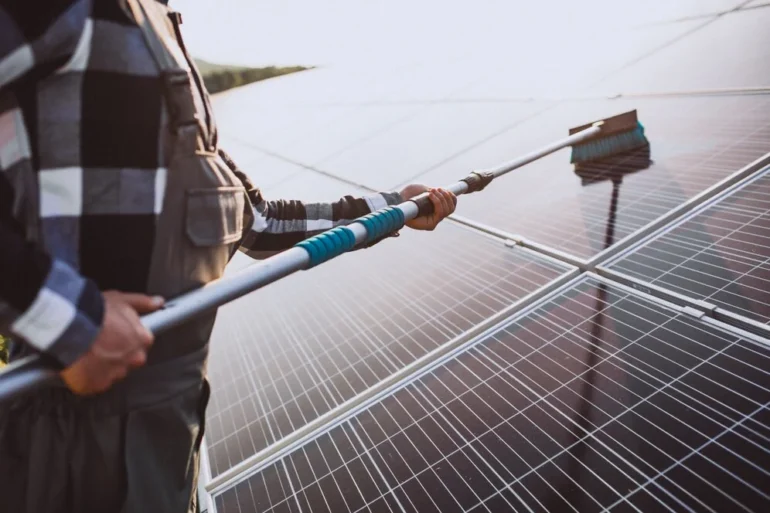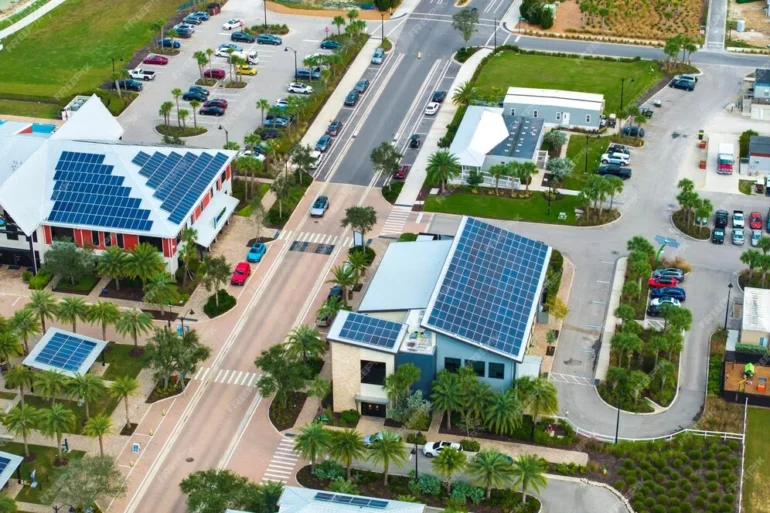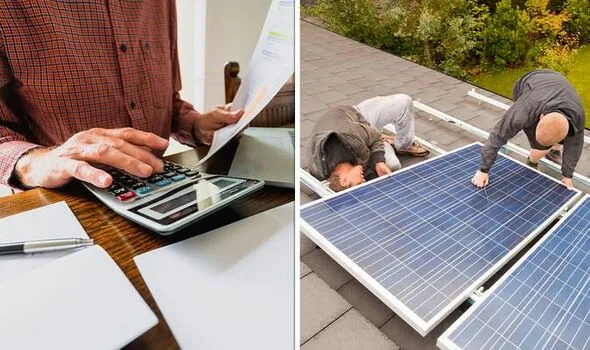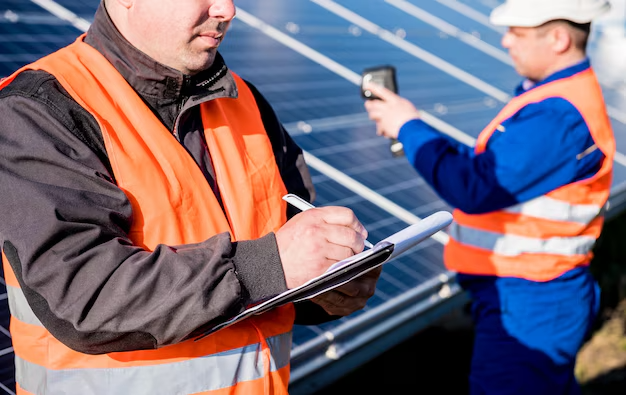Are you considering adding batteries to your existing solar system? If so, you’ll want to know when, why, and how to do it. This comprehensive guide covers everything you need to know, including the benefits and drawbacks of adding batteries, how to choose the right type of battery, and how to properly install and maintain them. By following these guidelines, you can ensure your solar system is functioning at its best and providing you with clean, renewable energy for years to come.
Introduction
Solar power is an excellent way to power your home or business. However, without a way to store the energy produced by your solar panels, you may not be able to use your solar power when you need it the most. Adding batteries to your existing solar system is one way to store solar energy for later use.
In this article, we’ll discuss when to add batteries to your existing solar system, why you may want to add batteries, and how to add batteries to your system.
When to Add Batteries to Your Existing Solar System
Adding batteries to your solar system can be a smart investment, but it’s not always necessary. Here are some signs that it may be time to add batteries to your existing solar system:
- You want to use solar power during power outages.
- You want to maximize the use of your solar energy.
- You have a high electricity usage and want to save more money on your electricity bill.
- You want to reduce your dependence on the electricity grid.
If you experience any of the above scenarios, it may be time to consider adding batteries to your solar system.
Why Add Batteries to Your Existing Solar System?
Adding batteries to your existing solar system can provide several benefits. Here are some reasons why you may want to add batteries to your solar system:
1. Power outages
Batteries can provide backup power during a power outage. This is especially useful if you live in an area that experiences frequent power outages.
2. Maximizing solar power usage
Solar panels produce energy during the day when the sun is shining. However, most people use the majority of their energy during the evening and at night. By adding batteries to your solar system, you can store the energy produced during the day for later use.
3. Reducing electricity bills
If you have a high electricity usage, adding batteries to your solar system can help you save more money on your electricity bills. By storing energy during the day, you can use your stored energy during peak hours, when electricity prices are typically higher.
4. Reducing dependence on the electricity grid
Adding batteries to your solar system can help you reduce your dependence on the electricity grid. By storing energy during the day, you can use your stored energy during peak hours, when electricity prices are typically higher.
How to Add Batteries to Your Existing Solar System
If you’ve decided to add batteries to your existing solar system, here are the steps you need to follow:
Determine your energy needs
The first step is to determine your energy needs. This will help you determine how many batteries you need to add to your solar system. You can determine your energy needs by looking at your electricity bills and tracking your energy usage.
Choose the right batteries
Once you’ve determined your energy needs, you need to choose the right batteries for your solar system. There are several types of batteries available, including lead-acid, lithium-ion, and flow batteries. Each type of battery has its own advantages and disadvantages, so it’s important to do your research before choosing a battery.
Install the batteries
Once you’ve chosen the right batteries for your solar system, it’s time to install them. If you’re not comfortable installing the batteries yourself, it’s best to hire a professional to do it for you.
Connect the batteries to your solar system
After the batteries have been installed, you need to connect them to your solar system.
Test your system
Once the batteries are connected to your solar system, you need to test your system to ensure everything is working properly. This includes testing the battery backup during a power outage and ensuring your system is properly charging and discharging the batteries.
Monitor your system
It’s important to monitor your system regularly to ensure it’s functioning properly. This includes monitoring the battery charge level, checking for any signs of damage or wear and tear, and performing regular maintenance.
Pros and Cons of Adding Batteries to Your Solar System
Before deciding to add batteries to your solar system, it’s important to consider the pros and cons. Here are some advantages and disadvantages to consider:
Pros:
- Backup power during a power outage
- Maximizing the use of your solar energy
- Saving more money on your electricity bill
- Reducing dependence on the electricity grid
Cons:
- The upfront cost of batteries can be expensive
- The lifespan of batteries is limited, typically 5-10 years
- Batteries require regular maintenance and replacement
- Some types of batteries can be hazardous to the environment
When Not to Add Batteries to Your Existing Solar System
Expanding your existing solar system with battery storage can offer numerous benefits, such as increased energy independence and the ability to store excess solar energy for later use. However, there are certain situations where adding batteries may not be the best option. Understanding when not to add batteries to your existing solar system is crucial for making informed decisions about your energy setup. Here are some factors to consider:
- Cost Considerations: Adding batteries to an existing solar system can be a significant financial investment. In some cases, the cost of purchasing and installing the batteries may outweigh the potential benefits they provide. If your primary goal is to save money on your electricity bills and you already have a reliable grid connection, it may be more cost-effective to maximize self-consumption of solar energy without investing in batteries.
- Energy Consumption Patterns: Assess your household’s energy consumption patterns to determine if adding batteries would be beneficial. If your energy usage is relatively consistent throughout the day and you already consume a significant portion of your solar energy as it is generated, the additional expense of batteries may not be necessary. However, if your energy demands fluctuate significantly or you often have excess solar energy that goes unused, batteries can help capture and store that energy for later use.
- Grid Reliability: Consider the reliability of the grid in your area. If you rarely experience power outages or have a reliable backup power source, such as a generator, adding batteries to your solar system may not be essential. The primary purpose of batteries is to provide backup power during outages or when the grid is unavailable. If grid reliability is not a concern, the need for batteries may be diminished.
- System Compatibility: Evaluate the compatibility of your existing solar system with battery storage. Older solar systems or those with certain inverters may not be compatible with batteries or may require additional equipment upgrades. In such cases, the cost and complexity of retrofitting your system to accommodate batteries may outweigh the benefits. Consult with a professional solar installer to assess the compatibility of your system before making a decision.
- Future Expansion: Consider your future plans for system expansion. If you anticipate adding more solar panels to your existing system in the near future, it may be more practical to wait until the expansion is complete before considering battery installation. This allows for a more seamless integration and ensures that the system is properly sized to meet your energy needs.
When deciding whether to add batteries to your existing solar system, it is advisable to consult with a reputable solar installer or energy professional. They can assess your specific circumstances, evaluate the costs and benefits, and provide personalized recommendations based on your energy goals.
If adding batteries is deemed appropriate for your situation, here are some key considerations:
- Battery Capacity: Determine the appropriate battery capacity based on your energy consumption patterns and desired backup power duration.
- Battery Chemistry: Choose the battery chemistry that best aligns with your needs, such as lithium-ion or lead-acid batteries, considering factors like performance, lifespan, and maintenance requirements.
- Inverter Compatibility: Ensure that your existing inverter is compatible with battery storage or consider upgrading to a hybrid inverter that can manage both solar energy and battery storage.
- Professional Installation: Engage a qualified solar installer or energy professional to handle the installation of batteries, as it involves electrical work and system integration that requires expertise.
FAQs about Adding Batteries to Your Solar System
How many batteries do I need to add to my solar system?
The number of batteries you need to add to your solar system depends on your energy needs. You can determine your energy needs by looking at your electricity bills and tracking your energy usage.
What type of batteries should I use for my solar system?
There are several types of batteries available, including lead-acid, lithium-ion, and flow batteries. Each type of battery has its own advantages and disadvantages, so it’s important to do your research before choosing a battery.
Can I install the batteries myself?
If you’re comfortable working with electricity and have experience installing solar systems, you may be able to install the batteries yourself. However, if you’re not comfortable working with electricity, it’s best to hire a professional to do it for you.
How long do batteries last?
The lifespan of batteries is typically 5-10 years, depending on the type of battery and how well it’s maintained.
Conclusion
Adding batteries to your existing solar system can provide several benefits, including backup power during a power outage, maximizing the use of your solar energy, and reducing your dependence on the electricity grid. However, it’s important to consider the pros and cons and do your research before deciding to add batteries to your solar system. If you’re not comfortable installing the batteries yourself, it’s best to hire a professional to do it for you. By following these guidelines, you can ensure your solar system is functioning at its best and providing you with clean, renewable energy for years to come







